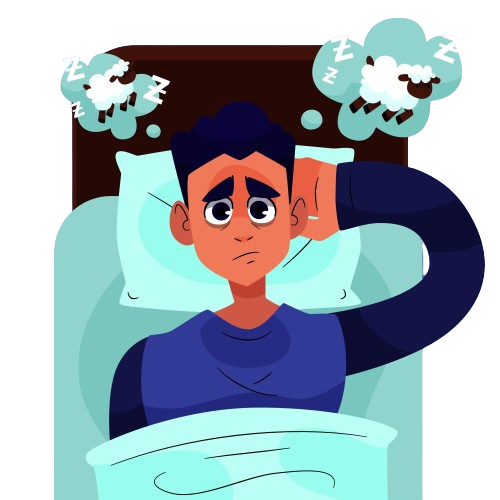Seeking Assistance for Male Sexual Issues from Certified Sexologists

Impotence
When a man struggles to achieve or sustain an erection sufficient for sexual
intercourse, it's often referred to as impotence or erectile dysfunction (ED).
If you find it challenging to maintain penile rigidity, you might be
experiencing ED. Understanding the root cause of ED is crucial for effective
treatment.
The primary causes of impotence can be divided into physical and psychological
factors.
Impotence stems from physical factors like heart disease, high cholesterol,
hypertension, diabetes, obesity, and smoking, which hinder blood flow to the
penis or damage arousal nerves. Psychological factors such as depression,
anxiety, and stress also play a role by disrupting brain signals to the penis.
Both physical health issues and emotional distress affect erectile function,
often requiring comprehensive treatment approaches.
Night Fall
Nightfall, also known as nocturnal emission or wet dreams, is normal but can be
troubling if frequent. Treatment options include lifestyle changes like good
sleep habits and stress reduction.
Medications such as antidepressants or herbal remedies like ashwagandha may
help. Behavioral therapy with a counselor can address underlying psychological
factors. Additionally, Kegel exercises to strengthen pelvic muscles may be
beneficial. Consulting a doctor is crucial for proper diagnosis and treatment
guidance tailored to individual needs and health conditions. For low-cost
nightfall treatment, seeking advice from healthcare providers is advisable.


Depression
Depression often leads to decreased libido and loss of interest in sex, common
symptoms frequently overlooked or dismissed by men, who may attribute them to
aging or feel embarrassed discussing them.
The primary causes of impotence can be divided into physical and psychological
factors.
Performance anxiety can exacerbate erectile dysfunction (ED), shifting focus
from pleasure to anxiety during sexual encounters. A comprehensive sexual
history is crucial for diagnosis, considering factors like ED onset, nocturnal
erections, and interpersonal dynamics. Risk factors such as smoking, diabetes,
obesity, and depression are assessed. Resuming sexual activity after a hiatus
requires patience, akin to starting a new exercise regimen. Honest communication
with healthcare providers is essential for effective treatment.
Premature Ejaculation
Premature ejaculation occurs when a man ejaculates too quickly and without
control, often before or shortly after sexual intercourse begins.
. This condition, affecting one in five men at some point, can cause distress
for individuals and their partners. Various factors contribute to premature
ejaculation, including mental issues like stress and depression, alongside
potential biological predispositions.
Symptoms include ejaculation with minimal stimulation, diminished sexual
pleasure, and feelings of guilt or frustration. Diagnosis involves discussing
sexual history openly with a doctor, who may conduct physical exams or
neurological tests to rule out underlying medical causes. Effective treatments,
ranging from therapy to medication, exist for those experiencing persistent
premature ejaculation. Seeking specialist help is recommended for those with
ongoing difficulties. While some respond quickly to treatment, others may
require longer-term support. Understanding and addressing both the physical and
psychological aspects of premature ejaculation is essential for effective
management and improved sexual satisfaction.


Constipation
Constipation occurs when the colon absorbs excessive water, resulting in hard and
dry stool. Typically, as food progresses through the colon, water is absorbed,
forming solid stool propelled by muscle contractions. In constipation, slow colon
movement allows excessive water absorption, leading to hard and dry stool.
Common causes include inadequate exercise, insufficient fluid intake, low fiber
consumption, and ignoring bowel urges. Lifestyle changes, travel, pregnancy, aging,
and certain medications can contribute. Symptoms vary but may include painful bowel
movements, infrequent bowel movements (fewer than 3 per week), bloating, low energy,
abdominal pain, and ineffective straining during bowel movements. Underlying factors
such as irritable bowel syndrome, metabolic issues, and intestinal obstruction may
also contribute to constipation. Seeking medical advice is crucial for accurate
diagnosis and appropriate management based on individual circumstances.
Dhatu Dosha
Dhatu Rog, also known as Dhatu Dosha or Dhat syndrome, refers to excessive
ejaculation or discharge of fluid from the penis, leading to low semen levels.
This condition, considered a type of prameya in Ayurveda, involves the involuntary
loss of semen through various means such as urination, masturbation, or nocturnal
emissions. Such discharge, whether before or after urination, adversely affects
sexual health and overall well-being. The condition can have detrimental effects on
an individual's physical and mental health, necessitating proper diagnosis and
management to mitigate its negative impacts.

